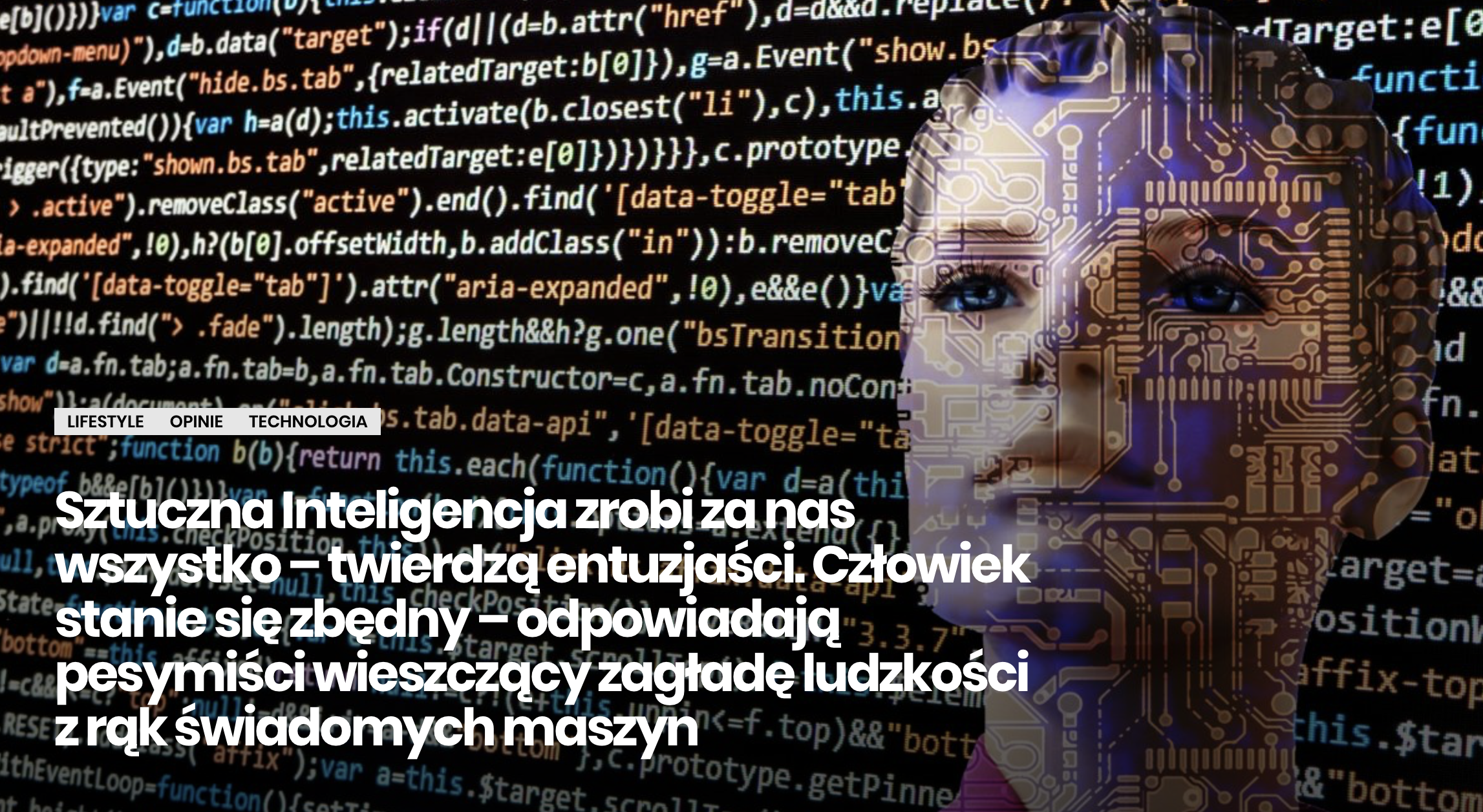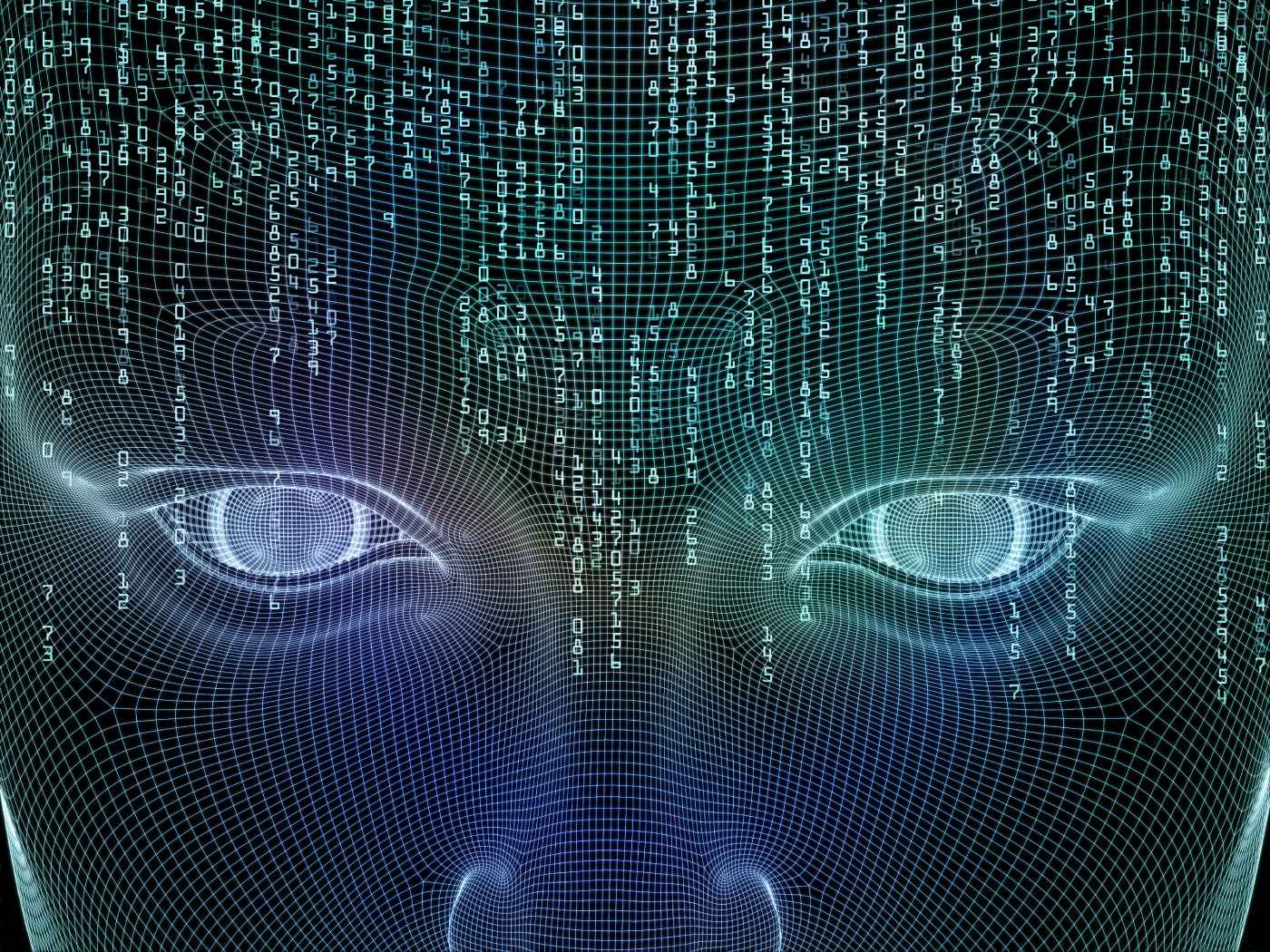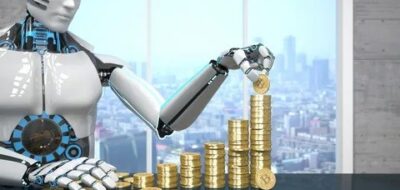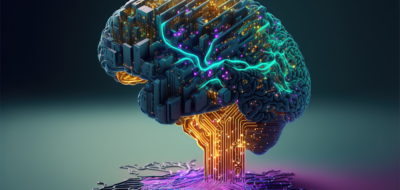My article in BrandsITon April 01, 2018.
Machines capable of feeling human emotions
I have touched the theme of Artificial Intelligence on my blog many times. I am fascinated by this technology and the possibilities it brings. I am also aware of the risks. How far will we go in the development of this technology? How will we let her?
Artificial intelligence will do all of our work for us – it will even find a cure for cancer, claim enthusiasts. It will render man useless, respond pessimists, prophesying a doom of humanity at the hand of conscious machines. Either way, today’s AI developers will determine our fates in the next dozen or so years. Especially that they have the financial means to do the job.
About machine consciousness
In reply to a journalist’s question on whether machines will ever be able to feel, Oren Etzioni, co-founder and CEO of Allen Institute for Artificial Intelligence, an organization established two years ago by Microsoft co-founder Paul G. Allen, said: “The short answer is no. An expanded one is: no, they won’t – people have an overblown perception of what computers can do in this day and age”. Another notable quote came from Stuart J. Russel, a scientist credited with major contributions to AI research, an author of many publications on the subject: “The biggest obstacle to the development of AI is we have absolutely no idea how the brain produces consciousness. If you gave me a trillion dollars to build a sentient or conscious machine, I would give it back. I don’t get the sense we are any closer to understanding how human consciousness worksthan we were 50 years ago”.
Why don’t we look at some facts that are undeniable and that will offer an undistorted view of where we stand on developing Artificial Intelligence. Is the experts’ skepticism justified?
Enthusiasm takes us all away
Not a month goes by without reports on global corporations such as Google, Amazon, IBM, Facebook, Apple, Microsoft and Samsung investing in AI and the proliferation of start-ups developing ultra-modern smart technologies. The trend is as popular with mainstream media as it is with niche technology portals. It is accompanied by an ongoing debate on the possible consequences of the spread of artificial intelligence. The buffs are quick to enumerate the benefits they expect to see within a decade or two, including computers responding to human facial expressions, emotions and voice, self-improving computer systems using successive dataset operations (machine learning), implantable nanobots capable of seeking out and destroying cancer cells in human bodies, computer decision support systems; smart technologies in our homes and autonomous vehicles. Even today, the effort to prolong human life, the strife for greater data processing power and the ongoing personalization of personal computers provide a fuel of sorts for global business and are no longer the domain of Hollywood directors who have for years exploited AI.
Money drives intelligence
Continued research in the field and greater funding will inevitably result in a gradual commercialization of AI. Within the horizon of just a few years, the involvement of big corporations can be expected to produce revolutionary changes in both medicine and business. Forecasting agencies predict a quantum leap in the next five years. During this time, the funds invested in AI-related projects will grow by tens of percent while fascination with artificial intelligence is posed to snowball. According to the CB Insights, in 2015 alone, the global financial market saw the arrival of approximately 300 new large companies whose mission statements featured such keywords as artificial intelligence, machine learning and neural networks. According to a report by the market research agency TechSci Research, the United States AI market will grow by 75 percent during 2016 – 2021. The money will go to making AI better adapted for consumer electronic devices, scientific research, autonomous cars and R&D activities in the healthcare industry. On the other hand, BCC Research, a company specializing in technology markets research, projects the global market for smart machines (neurocomputers, expert systems, autonomous robots, intelligent assistants) to grow to US$ 15.3 billion by 2019, with an annual growth rate of 19.7 percent. Without a doubt, this is the fastest-growing segment of the technology industry.

Link to the full article (in Polish)
Related articles on my blog:
– Only God can count that fast – the world of quantum computing
– Machine Learning. Computers coming of age
– According to our computers … You don’t exist
– What a machine will think when it looks us in the eye?
– Fall of the hierarchy. Who really rules in your company?
– Blockchain has a potential to upend the key pillars of our society










Zoeba Jones
Knowing the human genome is not the only key. Understanding the human Microbiome and its interactions with different substances is also critical. This is why there will be an opportunity across the Agtech. Companies like hashtag#ProteonPharma are well positioned to take advantage of this with our focus on the human Microbiome and investments in bacteriophages.
Oscar2
Taking into consideration that AI solutions (ie neural networks, genetic algorithms, machine learning, etc.) can be represented using computer programs (written in C, Java, etc.). Computer programs to be started on the computer have to be translated to the machine code where the main control instructions are simple conditional instructions and jump instructions, so we can say that “AI is nothing but a bunch of “if…else” statements”… 🙂